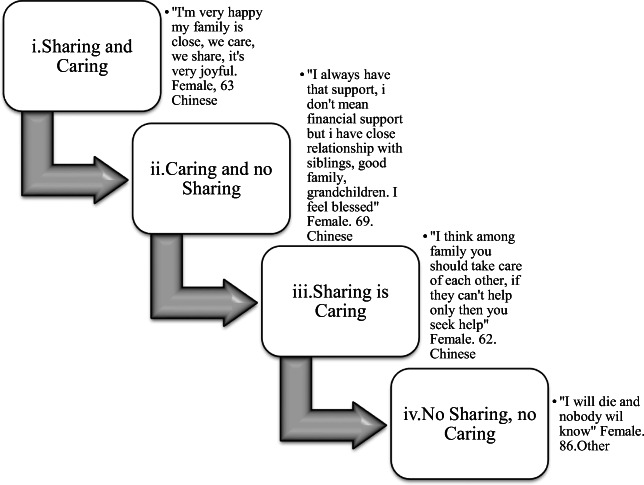Fig. 2.
Taxonomy of social relationships amongst Asian older adults in Singapore, (n = 40). (i). Sharing and Caring: These older adults’ believed they were not only financially supported by their family, but also emotionally. They highlighted the closeness of the family, with regular contact and activities but also willingness to share health and more significantly, emotional problems with. (ii). Caring and No Sharing, this type of relationship existed amongst the older adults who had a supportive family network, but there was very little family support in terms of financial or practical help. This was not because the family didn’t want to help, but more due to financial or practical constraints (e.g. living abroad, low income etc.). (iii). Sharing is Caring, represented a group of older adults who were still very satisfied with their family relationships and still felt as supported, but the support they talked about was financial or practical help. When asked about emotional support, Elder’s within this subtheme felt it was inappropriate to share emotional problems with their family or with others. Interestingly, this was the most common form of relationship reported amongst the older adults. (iv). No Sharing, No caring. This theme was reflected in a small group of older adults, who had no social support, and thus had very little caring or sharing. These older adults reported ‘no caring and no sharing’ highlighting feelings of loneliness and social isolation

